Citizen-Saints
Shakespeare and Political Theology
Julia Reinhard Lupton
The University of Chicago Press
Chicago and London
The University of Chicago Press, Chicago 60637
The University of Chicago Press, Ltd., London
2005 by The University of Chicago
All rights reserved. Published 2005.
Paperback edition 2014
Printed in the United States of America
23 22 21 20 19 18 17 16 15 14 2 3 4 5 6
ISBN-13: 978-0-226-49669-6 (cloth)
ISBN-13: 978-0-226-14352-1 (paper)
ISBN-13: 978-0-226-15744-3 (e-book)
10.7208/chicago/9780226157443.001.0001
first appeared as Creature Caliban in Shakespeare Quarterly 51, no. 1. (Spring 2000): 123, published by John Hopkins University Press.
Library of Congress Cataloging-in-Publication Data
Lupton, Julia Reinhard, 1963
Citizen-saints : Shakespeare and political theology / Julia Reinhard Lupton.
p. cm.
Includes bibliographical references and index.
ISBN-10 0-226-49669-4 (alkaline paper)
1. Shakespeare, William, 15641616Political and social views. 2. Political theologyHistory of doctrines16th century. 3. Political theologyHistory of doctrines17th century. 4. Political plays, EnglishHistory and criticism. 5. Christian drama, EnglishHistory and criticism. 6. Shakespeare, William, 15641616Religion. 7. Christian saints in literature. 8. Citizenship in literature. I. Title.
PR3017.L87 2005
822.3'3dc22
2004018510
 This paper meets the minimum requirements of ANSI/NISO Z39.48-1992 (Permanence of Paper).
This paper meets the minimum requirements of ANSI/NISO Z39.48-1992 (Permanence of Paper).
For my daughters and my son,
Hannah, Isabel, Lucy, and Eliot
May you blaze your own paths, together and separately,
between Athens and Jerusalem.
CONTENTS
ACKNOWLEDGMENTS
It is a tenet of this book that citizenship draws many circles, describing both local allegiances and broader affiliations. At the University of California, Irvine, I have been blessed with many strong friends and colleagues who have contributed in various ways to the genesis of this book, including Etienne Balibar, Robert Folkenflik, Alex Gelley, Andrea Henderson, Steven Mailloux, Jane Newman, Arielle Read, Victoria Silver, Michael Szalaly, and Ann Van Sant. My graduate and undergraduate students have contributed substantially to the refinement of my ideas; I would especially like to thank Craig Carson, Joseph Chaney, Brian Crawford, Viola Kolarova, Anna Kornbluh, Wes Kriesel, Debra Ligorsky, Philip Lorenz, Steven Miller, Tracy McNulty, Brendan Quigley, Jennifer Rust, Bonita Rhoades, Naomi Silver, Jonathan Singer, Catherine Winiarski, and James Zeigler for their insight, audience, and creative example.
Many scholars outside my immediate circle have variously supported, inspired, or sponsored this work, including Giorgio Agamben, Daniel Boyarin, Richard Burt, Patrick Cheney, Lars Engle, Margaret Ferguson, Lowell Gallagher, Robert Gibbs, Kenneth Gross, Richard Halpern, Graham Hammill, G. K. Hunter, Victoria Kahn, Jeffrey Knapp, Lisa Lampert, Brayton Polka, and Nancy Ruttenburg. The editors and readers at the University of Chicago Press, including Alan Thomas and Nicholas Murray, have provided generous yet pointed commentary.
This book was completed under the auspices of a University of California Presidents Fellowship (20022003). The Humanities Center at the University of California, Irvine, has provided research support and a publishing subvention. Portions of the book have been presented in a variety of settings, including UC Irvine, UCLA, UC Berkeley, UC San Diego, the University of Colorado at Boulder, the Modern Language Association, and the Shakespeare Association of America.
I arrived at the topic of citizenship initially through teaching and service, and only belatedly as a subject for more systematic reflection and writing. Lecturing in the Humanities Core Course, a genuinely collaborative enterprise mounted by UC Irvines School of Humanities, led to my readings of Othello, The Tempest, and Measure for Measure. I would like to thank my colleagues in the Core Course, especially Vivian Folkenflik, Gail Hart, Liz Losh, Brook Thomas, and Gary Watson, for providing such a stimulating environment for collective thought. My work in Humanities Out There, an educational partnership between UC Irvines School of Humanities and local schools, has given me the opportunity to experience the paradoxes and promises of citizenship firsthand; I am especially grateful to Michael Clark, Karen Lawrence, and Juan Francisco Lara for giving me the chance to do this work. Julie Ellison, David Scobey, and Kathleen Woodward continue to teach me how much I still have to learn about civic engagement.
Robert Moeller, a historian of citizenship in modern Europe, a co-teacher in the Humanities Core Course, a mentor in matters professional, and a partner in off-campus educational enterprises, has contributed on many fronts to the conception and completion of this book.
I couldnt have kept all the balls in the air without help from my several social networks, especially the women and men associated with University Hills, Tarbut vTorah Community Day School, and Congregation Bnai Israel.
I am sorry that I cannot share this book with my teacher Thomas Greene, or with David Kadlec, scholar, citizen, friend, and friend of my Friend.
Citizenship begins at home. My parents and stepparents, Mary Jane Lupton, Bill Lupton, Ken Baldwin, and Shirley Landon Lupton, gave me the unique privilege of witnessing the great social experiments of the 1960s and 70s; at each moment of decision, experiment, and relocation in my own life, they have encouraged my pursuit of happiness. Frank and Rosalind Reinhard have provided love and support at every turning point and the stops in between. My twin sister Ellen Lupton continues to inspire me with her multimedia mission to build a bigger, better, and more beautiful public sphere. Kenneth Reinhard is my helpmeet, housemate, bedmate, and soulmate; he is also my fellow traveler in thinking the social, and his ideas ring everywhere in these pages. I have dedicated this book to our children, Hannah, Isabel, Lucy, and Eliot. Saints in their sweet singularity and citizens in their miraculous multiplicity, they gave me the excuse to slow down and think more deeply about what I wanted to write, for myself and for them.
A NOTE ON TEXTS
Unless otherwise noted, citations from Shakespeare are from The Complete Works of Shakespeare, edited by David Bevington; citations from the Hebrew Bible are from the Soncino Chumash, edited by A. Cohen; commentary has been drawn extensively from The JPS Torah Commentary, edited by Nahum M. Sarna; citations from St. Paul are from The Writings of St. Paul, edited by Wayne A. Meeks; and citations from the New Testament (excluding Pauls) are from the Oxford Annotated Bible, Revised Standard Edition, edited by Herbert G. May and Bruce M. Metzger. Biblical citations appear parenthetically in the text; the abbreviations KJV and RSE are used as necessary to indicate the King James version and the return to the (Oxford) Revised Standard Edition of the Bible, respectively. Scriptural works are listed together in the bibliography in a separate section at the beginning.
INTRODUCTION
Sovereigns, Citizens, and Saints
The saint and the citizen would seem to face each other across an unbridgeable historical divide. The saint elects to join the City of God at the expense of the City of Men. Her acts of extremity cannot ground ordinary life except as fantasy and nightmare, and she embraces the most confining restraints and restrictions in order to separate from society rather than establish the grounds of social equivalence, interaction, and deliberation. On the other side of the chasm, the modern citizen is defined and sustained by a system of rights that, among other tasks of division and protection, separates church from state, relegating religion to the private world of individual conscience and purely civil (rather than civic) associations. Ornamented with the attributes of martyrdom, the saint has become the nostalgic afterimage of a lost exceptionality forever eclipsed by the normative routines of citizenship, the regular rotation of offices in the political sphere overseeing the circulatory pulse of getting and spending that measures out everyday existence under capital.
Next page

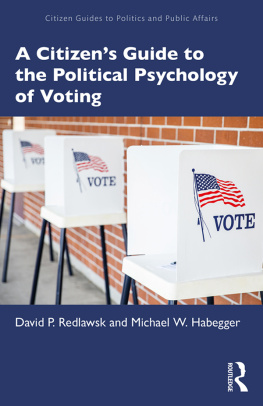
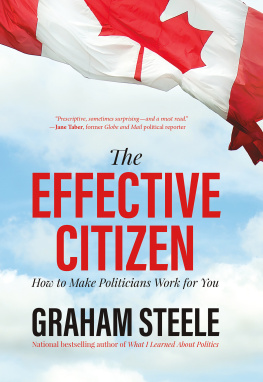
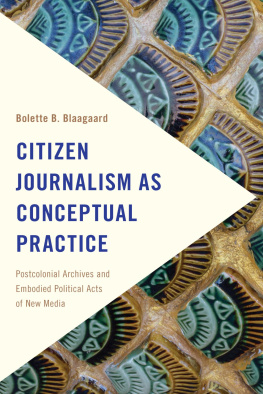
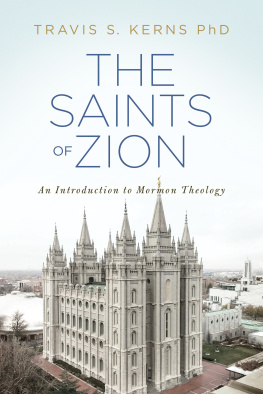
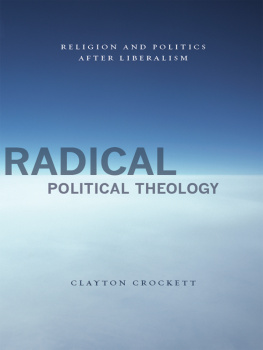
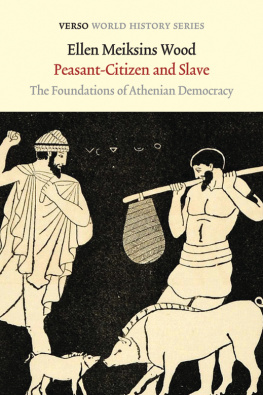
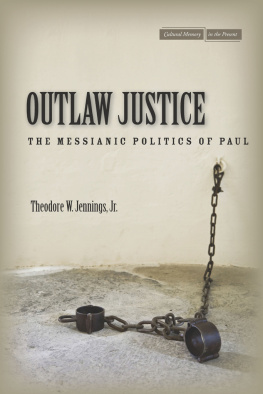
 This paper meets the minimum requirements of ANSI/NISO Z39.48-1992 (Permanence of Paper).
This paper meets the minimum requirements of ANSI/NISO Z39.48-1992 (Permanence of Paper).